A shorter version of this interview was published in the September 2014 issue of The HomeSchooler (now defunct), published by The Homeschool Association of California.
Unschooling in the World: India,
New Jersey,and the Civil War
Hema Bharadwaj, interviewed by Sandra Dodd
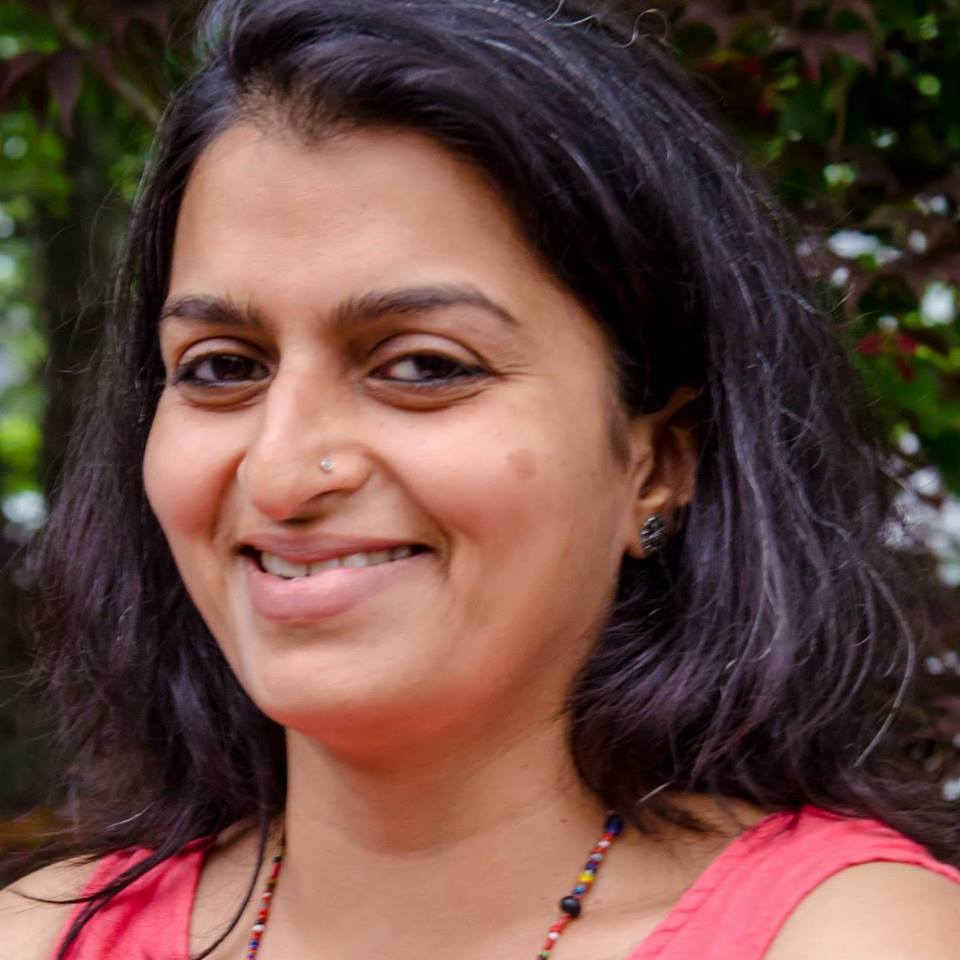
Hema will be speaking spoke at the December 2014 Albuquerque ALLive.
Hema Bharadwaj is the very artistic mother of Raghu (11) and Zoya (8). Ravi Bharadwaj is the husband and dad of the family. Hema (her name sounds like HEYmah) and I corresponded for a while before they visited our family in New Mexico in late 2009. A year later, I stayed with them in Pune for a month, in the state of Maharashtra, in India. They had a puppy named Snowy at the time. I took an engraved tag and a collar, because they couldn't get one of those tags in India.
When I met the family, Raghu was 6 and Zoya was 3. Now they are 11 and 8, and recently moved to New Jersey. Snowy is there, too.
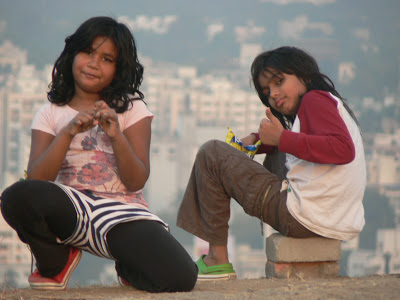
Sandra:
What kind of school would Raghu have attended in India, if you had not kept him home?
Hema:
I thought about this a lot even when Raghu was very young. I battled school and schoolness all my life. But for about five years when I was under twelve, I attended a very eclectic, interesting, tiny school run by a few British teachers out in the middle of a little township in the desert near Abu Dhabi. It was a lovely school and gave me more freedom to explore and read and imagine than any formal education after.
So I was determined to get Raghu to stay home for as long as was possible, till age six. I was looking for a preschool where he could go for 2-3 hours so I could get errands done and some art. And eventually a school with as much freedom as is possible. I had still not heard about free schools and charter schools and the like. I wanted him to roam free in his mind and have a lot of time to himself outside of school.
Raghu's health and unhappiness at the preschool (for about three months he attended a beautiful, attachment parenting type preschool, teachers were my friends, Jewish Montessori and still told me clearly that he only wanted to go to school on Fridays when they got to bake challah and eat it) prompted me to sit outside his classroom door and read books. The first one I read was And the Skylark Sings with Me, by David Albert. Then I read John Holt books.
Meanwhile, Raghu had developed seasonal allergies that had put him in the ER thrice within nine months.
Pretty much Raghu, the Doctor and John Holt put me on the road of no return 🙂
Sandra:
Once it was working with Raghu, did you even consider giving Zoya a school option?
Hema:
I knew that I had to stay open to either of them choosing school. At the time, I was not sure how unschooling would really play out. I rarely got to meet people whose homes truly resonated the principles of unschooling and radical unschooling that I resonated with. So it was hard to trust that my kids would continue to enjoy our lifestyle and not ask for school.
For a while Zoya tried a little school, alternative type and very friendly place run by a friend in Pune. She left after eight weeks of a few hours every other day. She said they didn't have as many kitchen toys as we did at home. So she was welcome to try school. Both kids knew that. But their interactions with friends and family who went to school instantly made them averse to the idea. And I think Zoya followed Raghu's lead in some ways.
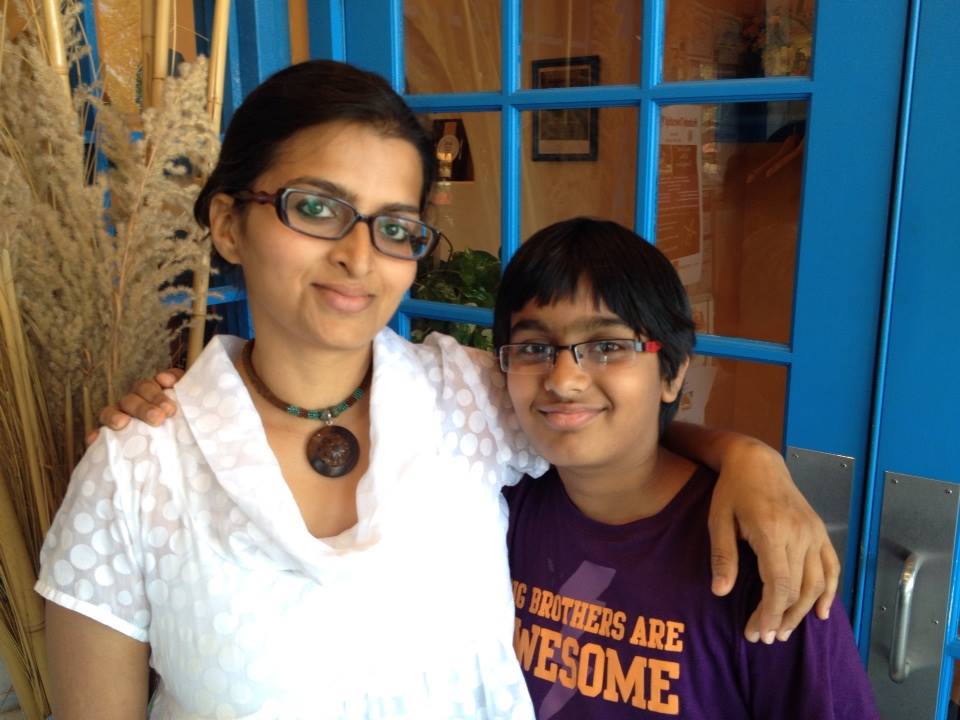
Sandra:
Were your parents and in-laws were accepting of your homeschooling ideas at first? If so, is it because of your confidence, or something in their own personal histories?
Hema:
Definitely my confidence. And I have shared your book and recently Pam Laricchia's book as a way for them to know more. I have talked often with all three grandparents and shared the kids' interests, how the grandparents could segue into that, etc. They're all are quite wonderful. But also they know that Ravi is highly independent and would not be ok with any interference. And my confidence dispels their fears.
But I do help lead them, give them ideas etc. I point out unusual out-of-school learning that has happened in their lives. Overall I think I am fortunate that my Mom is a play person and has a bit of an open spirit hidden inside her. She has a very special connection with all her grandkids. And she values how loving my children are, how they value family and heritage and are so interested in many things.
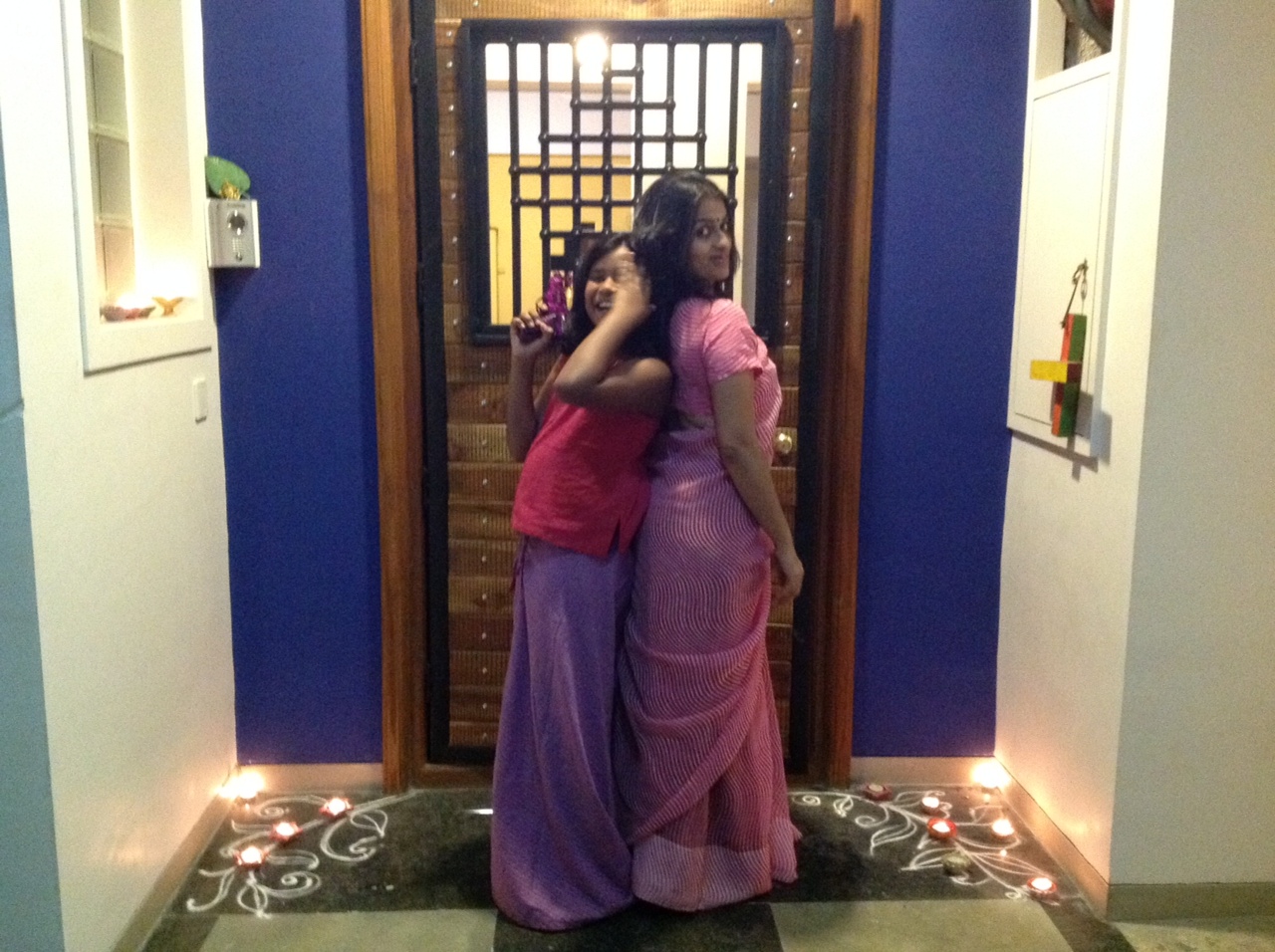
Sandra:
The trilingualism of the unschooled kids I saw in India was a big fascination for me. They all seemed to speak, or at least understand, Hindi (from kids' shows on TV) and another language (Marathi or Kannada or something), from grandparents, neighbors, household helpers, movies—in addition to English.
Hema:
Raghu and Zoya speak and think in English. They have recently started to talk some Hindi and Kannada. But they understand both languages a bit.
Sandra:
You knew some teenaged unschoolers in India, but more with younger children. Were you worried about continuing there, with unschooling?
Hema:
I used to worry mostly because many of Raghu's interests would be better met here. But I was also happy to make things work in India as I had slowly cultivated a community of like-minded families, and we were coming to the point where the kids liked travelling with us.
Raghu had a beautiful visit to my Dad's hometown and spent a day at our ancestral home, in June last year. Recently he asked if we could visit the home when we go to India. I love that he developed a connection and a sense of his roots, because of our longish stay there.
Sandra:
The move to the U.S. might have had a lot to do with Ravi's desire to return. He had already become a U.S. Citizen before you moved back to India together, right?
Hema:
Ravi became a citizen after we were married. I had a student visa and then later a work permit. Once he got the citizenship, I took a green card. I think it was in 2002. I came to study at SVA (School of Visual Arts, in Manhattan) in 1997 and met Ravi due to some housing issue. His aunt and my dad are related and close.
Sandra: How much has your master's degree in art helped or hindered you as an artist—if you're far enough away from that to consider the effects.
Hema:
I wish I had never been trained in art. But it's like wishing I had been unschooled. I roll with it now. But I still struggle. It's a big topic and I'm not sure I can explain it all. However I am so glad we can let our kids draw and paint and create their own unique art. And there is no good or bad. Ten years later, the kids are about grown, Hema is making and teaching and selling art. Links are below.
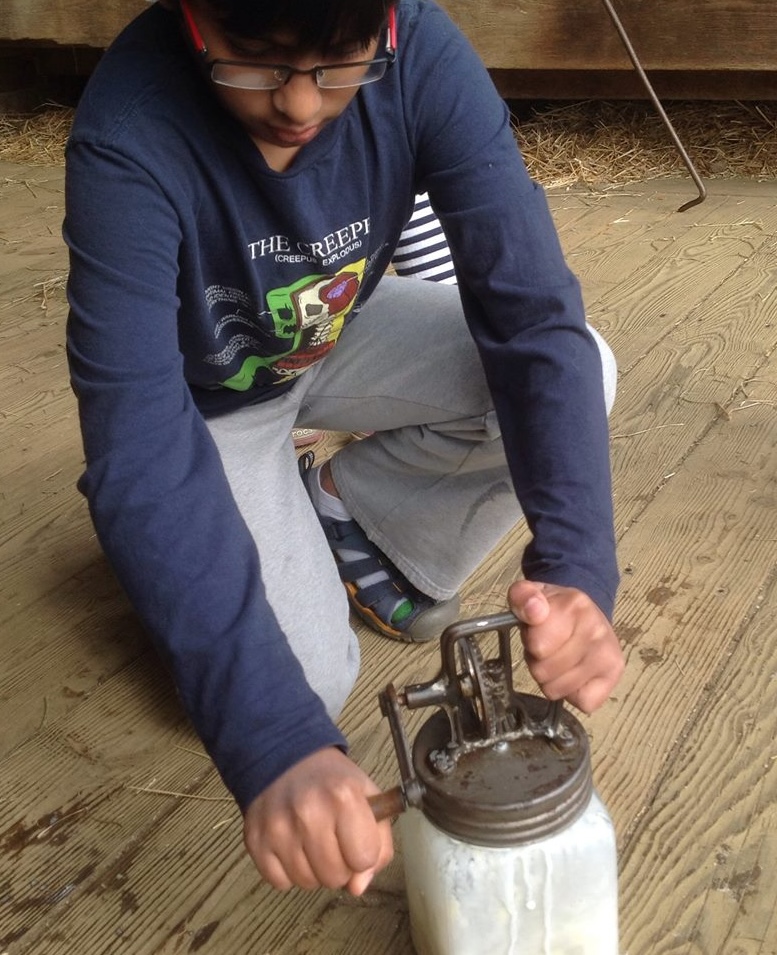
Sandra:
The story of Raghu knowing the American history question at the living history museum is a good one.
Hema:
We went with a homeschooling group to a lovely historic farm (Longstreet Farm in Holmdel, New Jersey)
where most of the buildings are from the 1800s and they give tours of life on a farm from that period. The highlight of the day for us was our friendly, knowledgeable, patient hostess Sandy. Raghu said he could cook in their 1800s kitchen forever. I felt a teensy bit closer to Laura Ingalls. Raghu and Zoya discussed the similarities between a real farm and their Minecraft farm. Raghu milked a cow and loved it. Zoya loved walking around and stroking the many cats. They got to do farm chores and then cook their own breakfast. And when Sandy asked what important event happened around 1860, the video-gaming child newly landed from India said 'the American Civil War' without batting an eyelid. He would have liked to ask Sandy about how the farm weathered the war, but they had to run to the next chore.
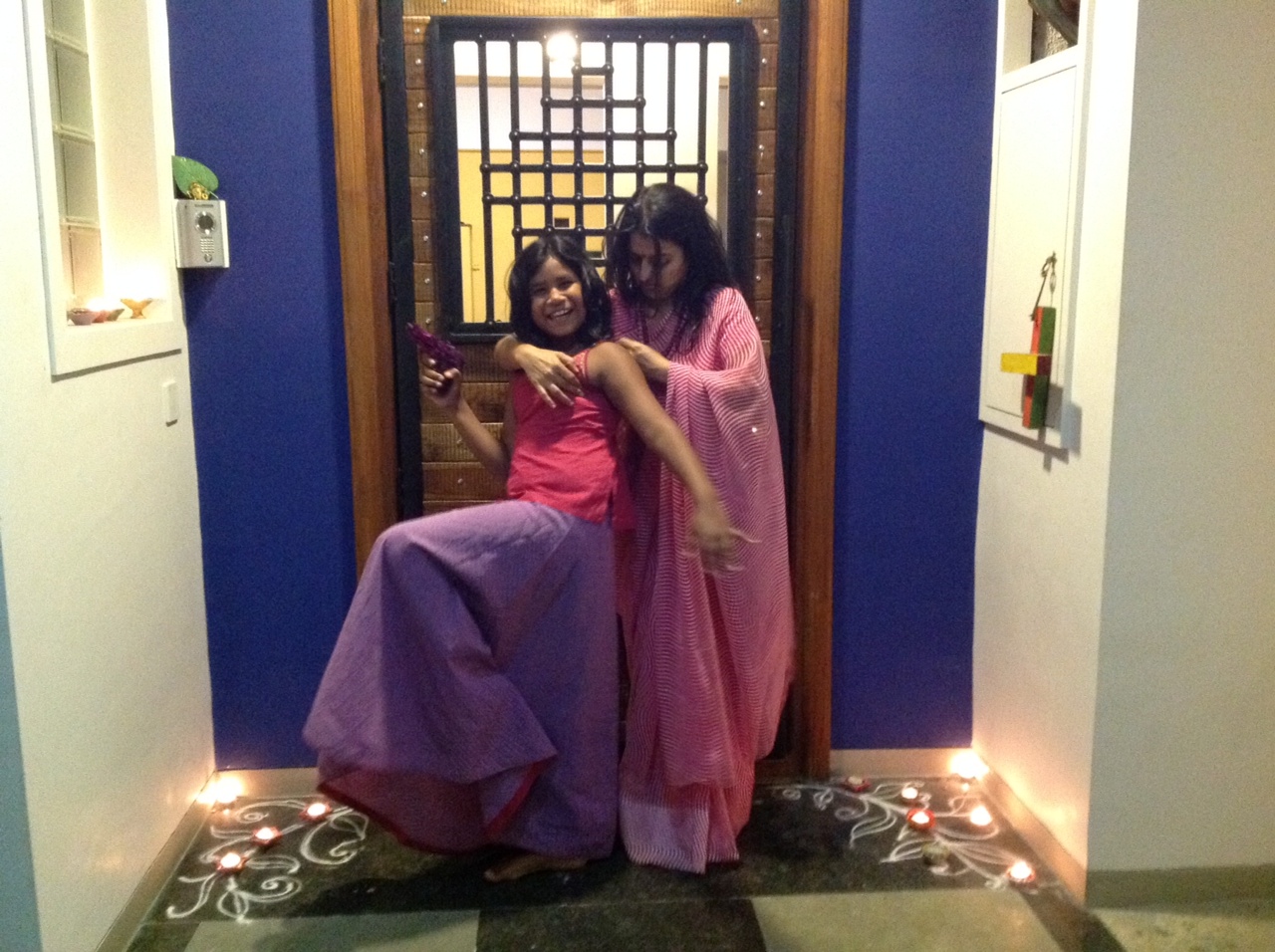
Sandra:
I have a theory I'm playing with that unschooling is easier when the parents are from two different cultures—maybe because they're not both invested in the same academic history, or cultural history. The two sets of grandparents can't band together and say, "Just do the way we have all always done."
Hema:
I am from Karnataka and grew up on United Arab Emirates. Ravi was born and raised in Maharashtra. That theory sounds plausible. Our parents are from similar backgrounds and share languages. And yes Ravi's early independence and working from age 21 and moving to the US helps him see the learning going on in unschooling. He never liked school or college himself and was self-taught in many areas. The first time he ever loved an institution was when he paid for and chose to do his part-time MBA in Finance from Fordham in NYC. He graduated the year Raghu was born.
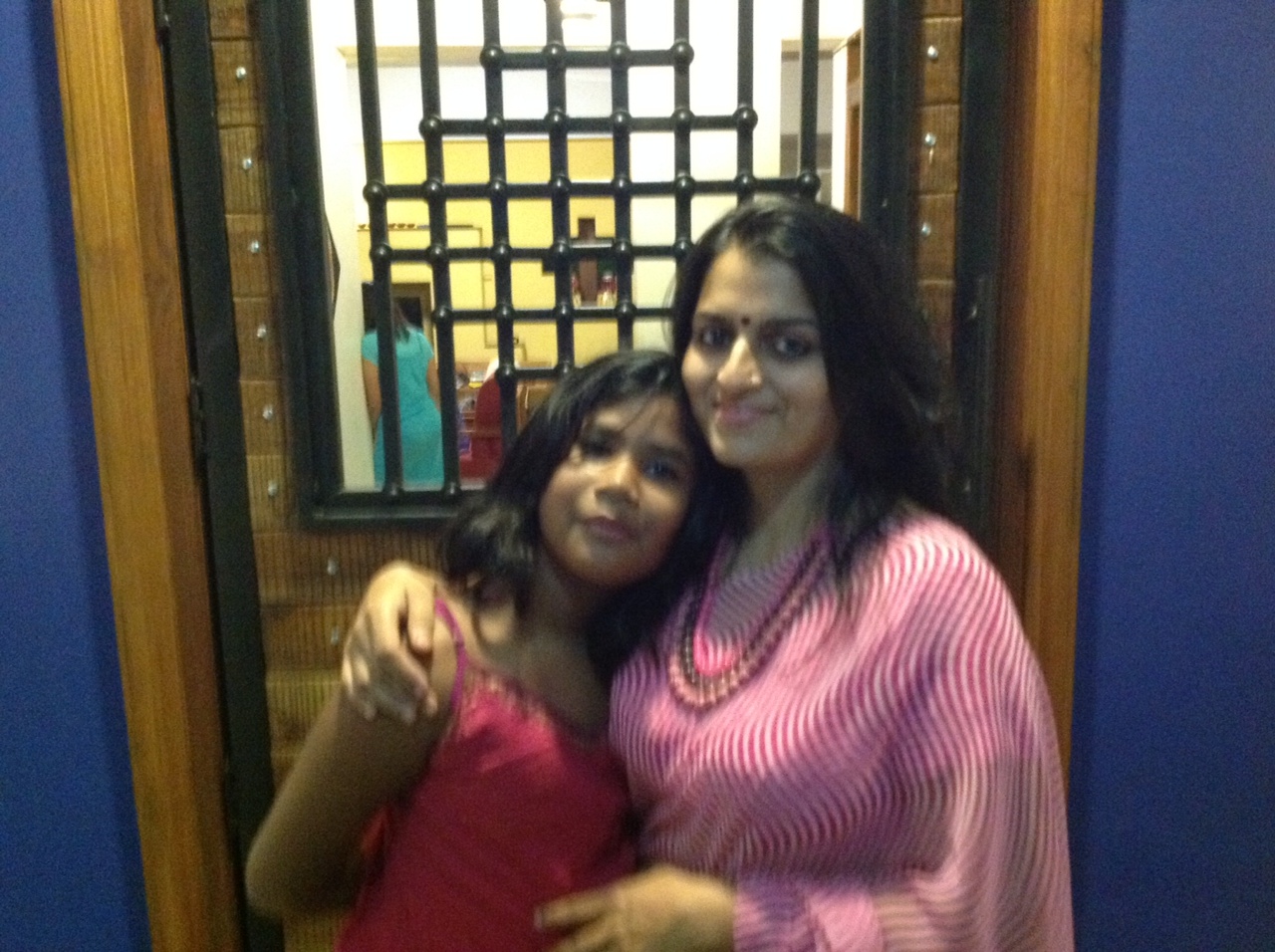
Sandra:
Your children had visited relatives or friends in the U.S. before. You had even been to my house in Albuquerque, which was fun. So they did have an idea of the differences between India and the U.S. Was your move inspired more by Ravi's job, or homeschooling considerations, or a longterm intention to move, or what?
Hema:
Ravi has never felt completely at home in India. He has felt more at home here since starting to work here at age 22. So while we had even bought an apartment in Pune and set it up, he seemed to be considering the US all along. So when some opportunities lined up, he just flew. I followed.
I was looking forward to setting up our home in Pune, getting even more settled into India, planning road trips to other unschoolers' homes in India etc. But when Ravi expressed his need to move back, I knew I would follow. Not unhappily. Just sad that I do not have my nieces and nephews, grandparents, etc. around more. I had nieces coming to stay every summer in India, so much family time and I had missed that since I left home when I was 16.
But anyway... the nice thing is we have a home in Pune and we plan to keep it. My mother in law moved in as her apartment is having some maintenance issues. So I am happy that the apartment is being cared for. And as the kids are keen too, we are budgeting for a long three-month trip to India in the winter.
For now we are renting and Ravi is rebuilding our finances and we will see how we feel about settling in to some part of this country.
Ravi always felt that the US was the best for unschooling our children. So that was a consideration for him. Unschooling our children in India seemed hard for Ravi, whereas here he feels at home and can unschool more successfully. There seemed to be too many challenges per Ravi back home to unschool well.
Sandra:
What emotions have you found come up, about this?
Hema:
Like I said, I have sadness. Zoya's best friend is Gourika (Dola's daughter). Z is really still missing her. She was used to playing outdoors in an open ended way in India every evening. Here there are hardly any kids outside. Most kids her age even in India and here are in classes! Every day of the week. So Zoya is adjusting but misses her impromptu play sessions. Dola lived only a tiny drive away. Zoya had a lovely time at Shine, loved the independence of moving around and meeting Quinn, her close friend here. She loved biking around freely (something that is hard in urban India).
Raghu is happy here as his interests are well matched. But his ideal is India and the US next to each other. He misses friend and family, but he loves it here too.
So I'd say Raghu and I ideally want to spend six months of the year here and six months in India. Ravi wants to stay here and travel to India for a short stay every year. Zoya is still wishing we would all move back and that this has been a lovely holiday in the US. Zoya especially misses the apartment we worked on, as she and Raghu were part of the design process.
Sandra:
How permanent a move do you think it's likely to be?
Hema:
Ravi says he thinks it's permanent. I am hoping we will budget for longish trips back home. My ideal would be if Ravi's job allowed him to work from India every year. And then we could take Snowy with us each time or find a lovely temp home for her here, during our trips.
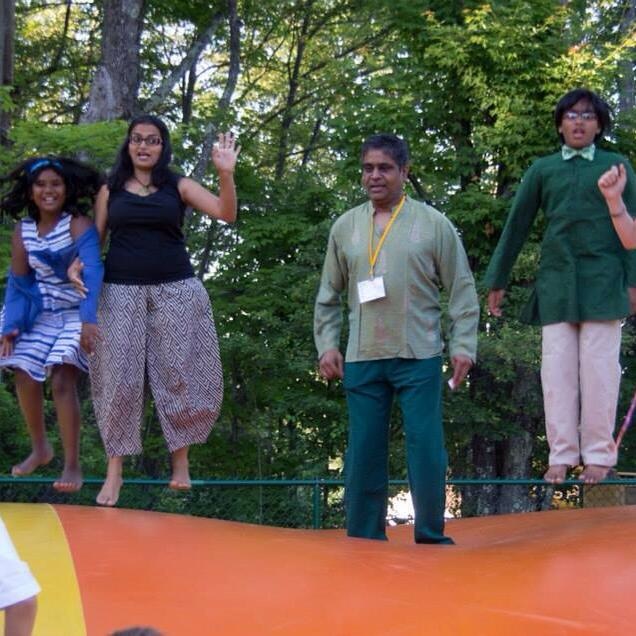
Bouncy-pillow photo by Melissa Bellemare, of A Hippie with a Minivan.com
Sandra:
For the unschooling itself, what will you miss from India? What advantages might you have had if you had stayed there?
Hema:
Mostly travel is cheap in India. Travel can give a wide perspective in India. We had family or friends or some connection via the homeschooling network all over India. I was looking forward to taking the kids to different locales with Snowy and staying for a month. And we three—Raghu, Zoya and I—especially miss family. The cousins were fairly close and had a lot of fun together.
Sandra:
What seems better in New Jersey?
Hema:
I think unschooling is so much more established in this country. When my children need teen interaction, there will be groups here meeting. There are camps and gatherings that are already well established that I can look forward to each year for personal nourishment and new connections. For the kids too.
If you are interested in dinosaurs here in the US, it's easy to look up museums, and events to attend. If you are interested in anything, it's likely that there is a group for it, or it's a road trip away. Raghu wants to do blacksmithing—something that in India is considered lowly and may be hard for a young child to get a nice environment to work in. Here it's a matter of googling. There is so much that one can explore in relative comfort in this country.
Its almost impossible for me to generally compare the merits of the US and India. But with regards to easy exposure to different skills, and real work, and museums, and managed yet interactive education (like children's museums etc) the US beats India. India is still so academically driven that unless you are interested in music or dance or a small range of sports etc, you will not find resources. It's hard to find something arcane like a Lego club or blacksmithing or Minecraft groups or Magic the Gathering tournaments, etc.
Rock climbing is a sport Raghu loves. Yet there are barely any walls in Pune. And the fantastic instructors he had over a few months began insisting that Raghu get ready to compete. Most of India likes to compete. What's the point of the game if you are not competing is the general take. Raghu left rock climbing because the wall was geared for competition training, it had a limited number of climbs and the instructors (whom he was fond of) started to urge him to compete. Here he climbs only against himself and enjoys the relaxed environment of a regular class/camp but without the pressure to compete.
I still think that if we were in India, there would have been other joys that cannot be compared to the joys here. But while living here I love it. If we moved back I will love it there too. When I first moved to India, I found the lack of urban child friendly places very hard. However I grew with my kids to love the other aspects of India. I learned to open my eyes to the beauty there and enjoy what was possible there. Raghu still remembers with fondness a rifle-shooting instructor who took a personal interest and really helped Raghu further his enjoyment of guns.
Sandra:
What are Raghu and Zoya liking most about their new surroundings?
Hema:
Biking around easily. Minecrafting fun with friends in person—not just via skype. Raghu loves the food variety. Zoya likes snow. They love road trips, the ease of camping etc. They're enjoying the local established unschoolers and homeschoolers, and their planned activities.
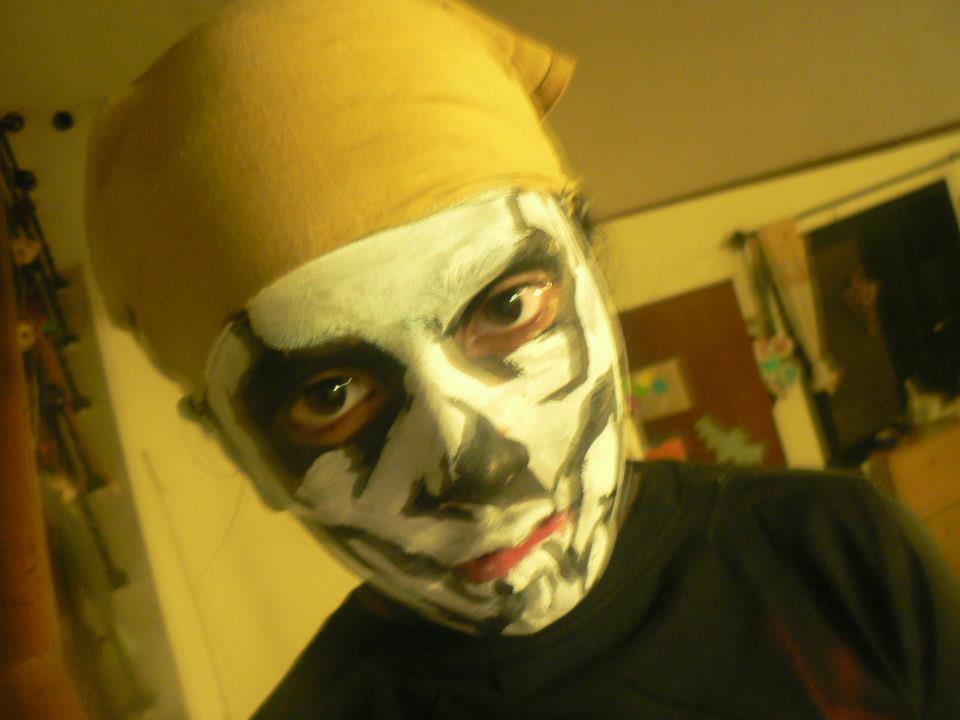
Sandra:
There are Indian expats in New Jersey for you to get in on holidays and celebrations, I think, right? And I suppose you can get Indian groceries and puja supplies, though not as fresh or as wonderful as in Pune.
Hema:
The kids and I enjoy a lot of our usual spices and ingredients from local Indian stores. NJ has the cheapest and most variety compared to rest of the US. Zoya and I missed our Indian Mangoes this year. But otherwise nothing is too difficult. We celebrated Holi at a local temple and the kids loved it.
Sandra:
I have fond memories of your visit here, and of "The Monkey Platter Festival." And I still think of my visit to India all the time.
Hema:
I am so happy you feel that way about the trip! I am grateful I was able to give something back in a way to you. Your website and collection of articles took me into a world of possibilities that I had wanted all my life, even for myself.
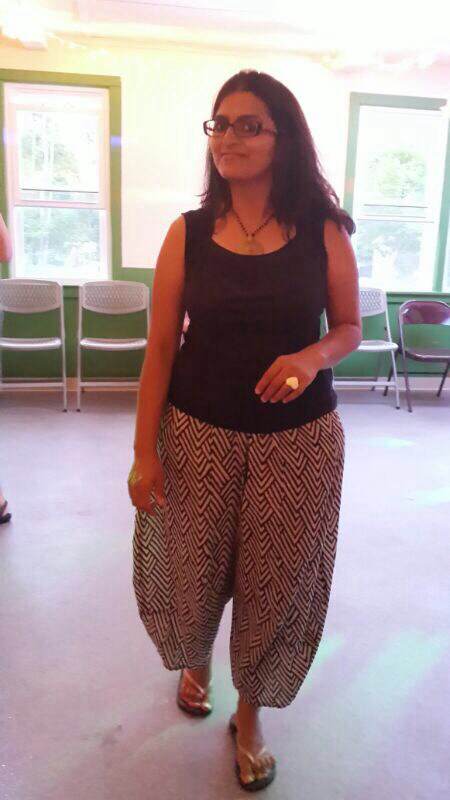
Sandra:
If you could give all unschoolers something by magic to help them succeed, what would it be?
Hema:
Kindness and a joyous attitude in the face of any adversity, small or large. This is what I wish for myself too.
| 2024 note: Hema is selling her paintings, and has art students. Some links:
|
Other Interviews and HSC articles

More by Hema







